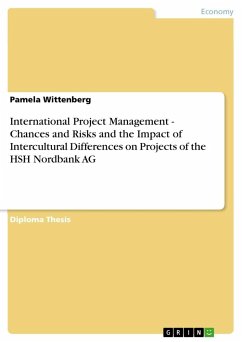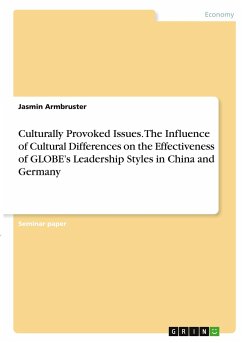Diploma Thesis from the year 2007 in the subject Business economics - Business Management, Corporate Governance, grade: 3,0, AKAD University of Applied Sciences Pinneberg, language: English, abstract: These days, many companies are no longer content to market their products and services on a national level alone; with increasing frequency, they are turning toward the world market as well. The dynamics and conditions at the global level are constantly in flux, making unstable business environments unavoidable and reiterative customization and realignment necessary. Accompanying these variable dynamics at the global level are two other factors: tighter deadlines and a greater number of international collaborations. The logic of global expansion means that ever more employees are working together with colleagues from other countries on projects they need to finish ever more rapidly.Ensuring that international projects can be realized efficiently and successfully requires rigorous and precise project management. And ensuring rigorous and precise international project management requires knowledge of intercultural differences, experience in intercultural communication as well as good collaboration and team development. Most problems in intercultural projects do not arise because of wrong objectives or management techniques, but because of intercultural misunderstandings.ObjectivesHSH Nordbank AG assesses projects based on compliance with planned levels of budget, time, and quality. Unfortunately, actual results often deviate significantly from target figures. This is especially the case with international projects. The question thus arises whether such variations result from intercultural differences and, if so, how project managers might diminish the likelihood of their occurrence-or even use them to their advantage.The aim of this thesis is to highlight the significant role played by cultural differences in international projects and to evaluate the impact of those cultural differences on the international projects of HSH Nordbank AG. After compiling and evaluating the opportunities and risks associated with cultural difference, I will then recommend several courses of action, outline a target concept, and assess its economic benefits.ScopeDue to the limited scope of this thesis, I will be unable to address all the aspects relevant to project management. At present time, the teams are predominantly composed of members from Germany, the USA, England, Singapore, and Denmark. For this reason, I will focus on these cultures in particular.








